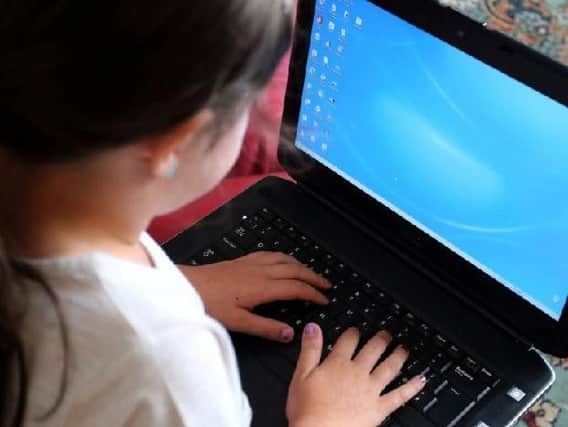Psychiatrists must consider impact of social media on children's mental health


An assessment should also be made of the amount of time young people spend online in case it is excessive, the college said.
Earlier this month, MPs said addiction to social media should potentially be classed as a disease as they called for tough new regulations to protect children from an "online Wild West".
Advertisement
Hide AdAdvertisement
Hide AdThey said platforms such as Facebook, Twitter and Instagram should be regulated by Ofcom and forced to adhere to a statutory code of conduct.
Concerns have been growing about graphic online content, including material featuring suicide and self-harm.
Earlier this year, the father of 14-year-old Molly Russell, who took her own life in 2017, said Instagram had "helped kill" his daughter.
READ MORE: Molly Russell: Father of tragic schoolgirl calls for new laws after claiming Instagram ‘helped kill my daughter’The Royal College of Psychiatrists said harmful online content such as images of self-harm or material promoting eating disorders could have an impact on an existing mental illness.
Conditions such as depression may also make children more likely to spend time online, while use of technology could lead to poor sleep, under-performance at school, behavioural problems and eating issues, it said.
Spending too much time online also limits the time for other activities, such as face-to-face conversations with friends and family, the college said.
It recommends that children stop using technology at least an hour before going to bed and avoid using technology at mealtimes.
Dr Bernadka Dubicka, chairwoman of the child and adolescent faculty at the Royal College of Psychiatrists, said: "Although we recognise that social media and technology are not primary drivers of mental illness in young people, we know that they are an important part of their lives and can be harmful in some situations.
Advertisement
Hide AdAdvertisement
Hide Ad"As a frontline clinician, I regularly see young people who have deliberately hurt themselves after discussing self-harm techniques online.
"Clinicians recognise the well-known phenomena of young people copying each other's harmful behaviour while on inpatient units, but it's even more worrying to see this replicated in the online world where audiences are so much bigger.
"We're also finding that some young people report being recommended harmful content; for example, links to websites encouraging weight loss or displaying self-harm after searching for, or clicking on, similar content just once before."
READ MORE: Social media could be classed as ‘addiction’ under calls to protect children from harm
The college's president, Professor Wendy Burn, added: "Digital technology is moving fast and we must make sure clinicians are keeping up with this.
"We desperately need more research into the benefits and harms of technology use, but until then we need to be mindful that many young people's lives are now being dominated by the online world."
The college is backing calls for an independent regulator, a code of conduct for social media firms and a levy to pay for research into links between technology and mental illness.
In February, following Ian Russell's campaign after his daughter died, the head of Instagram said all graphic images of self-harm will be removed from the platform.
The Government is due to publish a white paper setting out the responsibilities of social media companies.